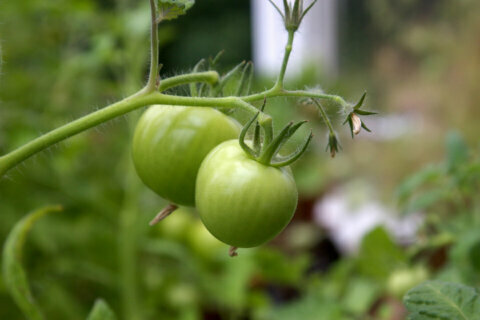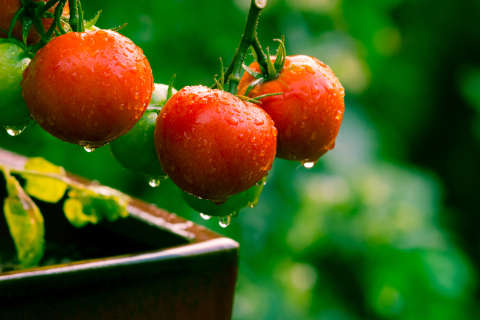Mike McGrath, wtop.com
WASHINGTON – Jim in Alexandria has an all-too common problem.
He writes, “I have several Boxwoods along the walkway at the front of my house, and neighborhood dogs love to urinate on them (and it doesn’t appear that their owners care.) This is slowly killing the Boxwoods. Almost half of the leaves are brown and dying. Any recommendations on how to keep the dogs away?”
Signage for starters, Jim. My local hardware store sells little signs that have words or images on them that make clear dogs shouldn’t be doing their business in the area. I’d post several – at a height of about three or four-feet, where they can’t be missed. (You’ll find lots of free, printable designs online, and one company I know of offers a variety of styles on long-lasting metal.
Give it about a week, and if the signs are being ignored, set up a motion activated sprinkler to protect the area. Getting a brisk shot of cold water should get the attention of the dogs and, more importantly, their clueless walkers.
Here’s the official website for the model that I use to ward off evil squirrels. And here it is a much better price.
The time is now to use milky spore to stop lawn grubs
George in Fredericksburg writes, “I read with interest your recent article explaining that milky spore doesn’t work when applied in the spring. I applied it to my lawn in March of this year. Did I waste my time, effort and money? Do I need to reapply?”
Unfortunately, the answer is yes to all of your questions, George. Years ago, I had the good fortune to track down and interview one of the researchers who helped develop milky spore disease as a natural protection against lawn grubs. He explained that to be effective, milky spore powder must be applied to a lawn when the soil temperature is at least 70 degrees and the grubs are actively feeding. Spring soils are much too cold, and grubs don’t feed in the spring.
The good news is that the soil temperature is perfect right now, and the grubs are actively feeding on the roots of your lawn. Apply the milky spore now and it should infect lots of grubs. And those dead grubs will, in turn, become little milky spore factories making your lawn grub-free for many, many years.
Manage moisture to mop up millipedes
Michael and Jill in “beautiful but buggy Harwood” write, “We have been in our house for 10 years now and hardly ever saw a millipede, but this year we are infested with them. They come out of the grass to die on the patio and driveway and sometimes they find their way into the house. I sprinkled some multipurpose insect killer around the perimeter of the house and saw no results. Is there something I can use that would specifically target the millipedes?”
That all-purpose poison only threatens your health, guys. Millipedes aren’t insects. But they are creatures of dampness and frequent watering of that lawn would attract them. You don’t need to spread different granules of death







